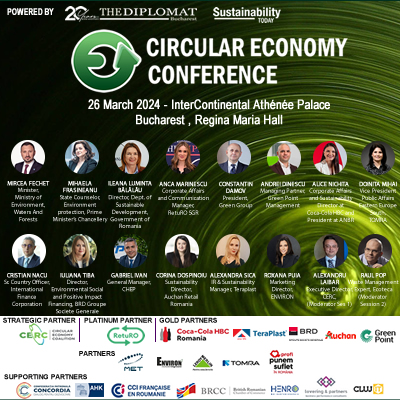Analysis by KPMG experts
The EU Corporate Sustainability Reporting Directive (“CSRD”), approved today, 28 November, at EU level, marks the biggest transformation in corporate reporting in the last almost 20 years, when the first accounting regulations harmonized with International Accounting Standards (IAS) were launched in Romania. However, companies are no longer assessed today from an economic-financial perspective, with commitments to ESG having to be integrated into an organization’s business strategy and mission in order to meet regulatory frameworks and expectations of corporate information users.
The CSRD has introduced wide-ranging changes to the reporting requirements, and also includes a much wider range of reporting companies within its scope. The implementation of these requirements is fundamental in supporting the stated objective of the European Commission to direct capital flows towards sustainable activities.
The Directive provides for information on issues such as the business model, its strategy and policies, key non-financial performance indicators and target indicators, company governance on sustainability issues, assessment of double materiality, risk management and ESG opportunities, as well as environmental (including European taxonomy) and social information, in line with European sustainability reporting standards.
The challenges and opportunities on the journey towards the preparation of future sustainability reporting are complex and varied:
- The assessment of double materiality, which increases complexity through the need for identification not only of the company’s impact on society and the environment (impact materiality), but also of how sustainability issues affect the reporting entity itself (financial materiality);
- In addition to reporting on policies and initiatives, the CSRD requires the organization to set objectives related to sustainability issues and to report on progress in achieving them;
- Companies must report and assess the impact of their own production operations and processes. This also applies to the impact of the activities of their partners in the supply chain;
- The details to be submitted must include both prospective and retrospective information, while extending the scope to the entire value chain (the company must explain the steps taken to obtain the necessary information about its value chain, the reasons why not all the necessary information could be obtained, where relevant, and its plans to obtain the necessary information in the future);
- The reporting must be carried out in accordance with the EU Sustainability Reporting Standards (ESRS), which will increase the reporting requirements; the first set of ESRS adopted by the European Commission is expected in June 2023; the second set of ESRS (including sectoral standards) adopted by the European Commission is expected in June 2024; ESRS will require companies to provide information in line with the European taxonomy.
The new sustainability reporting rules will start to apply gradually between 2024 and 2028, as follows:
- From 1 January 2024 for public-interest entities with more than 500 employees, for reports issued in 2025;
- From 1 January 2025 for large companies (exceeding 2 of the size criteria: more than 250 employees and/or EUR 40 million turnover and/or EUR 20 million total assets), for reports issued in 2026;
- From 1 January 2026 for publicly traded SMEs, for reports issued in 2027.




